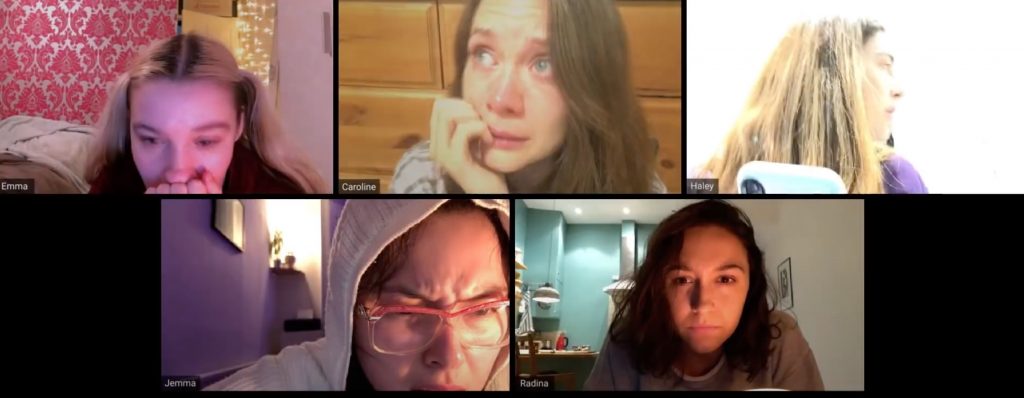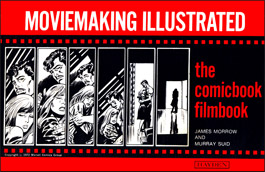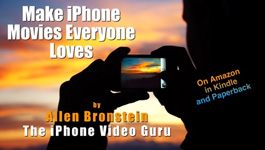Having visited Kenya many times, UK filmmaker William Long felt it was time to make a documentary about several Masai schools. Normally a careful planner, in this case he decided to let the material guide the project. The result is a nine-minute documentary that allows viewers to join the filmmaker as he discoveries the realities facing the children and their teachers. In an interview following the movie, William talks about his approach.
Interview with William Long
MobileMovieMaking: How did this project come about?
William: My Dad runs a charity called Mara Rianda Charitable Trust. Their main work is in supporting schools and the community of Mara Rianda, in the Masai Mara, Kenya, but that work has spread out to include supporting other schools nearby, building a medical centre and maternity ward, and sponsoring students from the Mara to go to secondary school. I’ve been out to Kenya multiple times and this time I decided to shoot a film whilst out there. I didn’t know what the film was going to be about, other than I wanted to interview people at the schools, so it really grew organically whilst there.
MobileMovieMaking: Did Mara Rianda sponsor the production?
William: Mara Rianda Charitable Trust didn’t sponsor the production financially but assisted whilst we were there. The charity is fantastic. In 2003 my Dad went to Kenya on a photographic holiday. Whilst there he visited Mara Rianda Primary School (now Mara Rianda Boarding Primary School) and spoke to the headmaster about what they needed. Seeing that their need was so great, my Dad decided to help. He set up the charity in 2004 and has achieved so much. A key philosophy of the charity is that 100% of any donations go towards the work and no funds are used to meet any overheads or salaries in running the charity. They also don’t do any fundraising, so all of the money that has been donated has come from people who have heard about the Mara Rianda community and wanted to help, themselves. You can read more about the charity at www.mararianda.com.
MobileMovieMaking: How long did the shoot take?
William: I was in the Masai Mara for a week, and always had my phone at the ready in case anything came up that I needed to shoot.
MobileMovieMaking: What gear did you use?
William: I shot the film on an iPhone 11, using FiLMiC Pro. Normally I try to make my films as cinematic as possible but for this one I wanted to make it feel as ‘real’ as possible. So instead of shooting it at 24 frames per second (fps) to achieve a cinematic look, I shot it at 30 fps, which gives it a really nice crispness. I also chose to shoot in 4K and I am blown away by the quality. My last film was also shot in 4K using the anamorphic lens but the 4K quality of the latest version of FiLMiC Pro and an iPhone 11 has amazed me.
MobileMovieMaking: What about the lenses?
William: I have shot a few films using an anamorphic lens from Moondog Labs, which I absolutely love. But for this film I really wanted to capture the height and vastness of the sky in the landscape (something I learnt from The Witch), so I left my lens at home and just used the iPhone’s lens, making use of the extreme wide-angle lens whenever I could.
MobileMovieMaking: Were there any advantages or disadvantages in shooting with the iPhone compared to shooting with a traditional camera?
William: The biggest benefit of shooting on a iPhone is that it’s always by my side and it takes about three seconds to get it out of my pocket and start recording. I also find that it’s less intimidating than a camera when filming interviews. People are used to phones (even some Masai carry smartphones) so getting someone to be comfortable with speaking on camera is so much easier with the iPhone than with a two-camera, three-lights, and a lapel-mic setup. Another benefit is that you have three lenses to choose from on the iPhone. In the film there are a lot of shots of kids looking into the camera and smiling. I achieved this by putting my camera on selfie-mode so that the kids can see themselves. The Masai don’t really use mirrors so they don’t have many chances to see themselves. So all of the reactions of the kids is them wanting to see themselves on camera.
MobileMovieMaking: During the shoot, did you encounter any unexpected problems?
William: The biggest problem I had is with the microphone quality. I had a really nice Shure microphone but it was knocked off of my phone whilst filming in India and I haven’t been able to replace it. So there were a couple of interviews that I shot that I just couldn’t use because there was so much wind noise. I couldn’t even remove it in post. Another slight problem I had was with how well the iPhone copes in low-light environments. We did an interview with a girl in her home in a manyatta, where the houses are made out of mud. It’s so dark and smokey inside that the iPhone just couldn’t cope with it. For that interview I only used the audio. There were some other shots that were more grainy than I would have wanted for a non-documentary film but I feel that documentaries are more forgiving and you can use grainy and shaky shots.
MobileMovieMaking: Has Covid had an impact on the Masai schools?
William: I believe that the schools have closed. The biggest problem is that there are a lot of Masai who work at tourist camps, and since there aren’t any tourists at the moment most of them are out of work. The Masai have also been social distancing and are making their own masks to protect themselves and their community.
MobileMovieMaking: What advice would you give to someone who might like to make this kind of documentary?
William: I didn’t know how this documentary would turn out or what it would be about. It developed naturally through speaking with people and filming. So my advice would be: don’t be afraid to be underprepared. I love to be organised and as a film editor and writer I always make sure I’m prepared and organised. I was worried that I didn’t know what I wanted to film until we got to Kenya, but that turned out to not be such a problem. There’s a great piece of writing advice which says, “If you don’t know what to write, just write.” The most important thing is that you’re writing. I’d say the same was true with this film. I didn’t know what to film, so I just filmed whatever I could and spoke to whoever was willing, and then discovered the film in the edit.
# # #
MobileMovieMaking has previously featured William Long’s “Patagonia” and “Life in North Korea.” You can learn more about his work at www.longfilms.co.uk.
The editors of MobileMovieMaking have chosen “Masai Schools” as the Mobile Movie of the Week.



 Previous post
Previous post
 Next post
Next post





